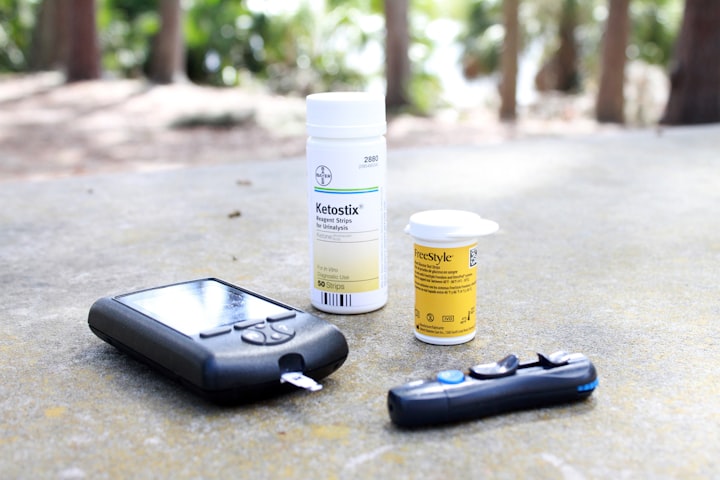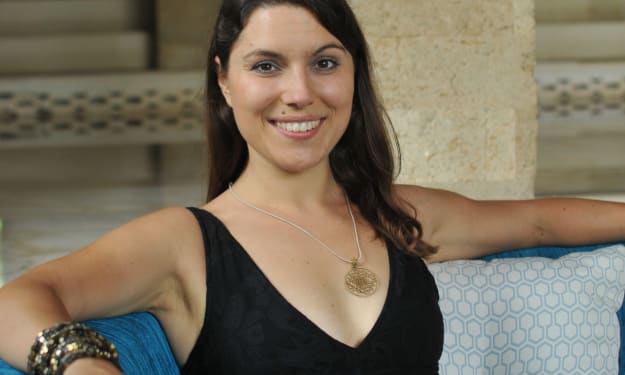Life by a thousand fingersticks
11 Things I've learned since my diagnosis as a type 1 diabetic

This year's July 11 marks 11 years since my diagnosis as a type 1 diabetic.
Diabetes isn't like other diseases. Receiving a diagnosis of diabetes isn't the same as the doctor telling you that you have cancer.
Dozens of diseases spring to mind that I consider far worse than diabetes. Tuberculosis. Congestive heart failure. Hepatitis C. AIDS. Creutzfeldt-Jakob disease. Kidney failure. ALS.
Having diabetes isn't devastating. It's not earth-shattering. Having it isn't like having a knife put through your chest. It isn't the kind of disease that drops you to your knees in a moment.
It can drive someone to that point but not instantaneously. It's through a constant wearing down. Test blood sugar. Give insulin. Test blood sugar. Drink juice. Test blood sugar. Exercise. Test blood sugar. Go to bed. Wake up. Test blood sugar.
Test. Test. Test.
Life by a thousand finger sticks.
The visual I like to give people is that scene at the end of Doctor Strange when he faces Dormammu over and over again until Dormammu gets so annoyed that he lets Dr. Strange win. Dr. Strange faces the same enemy over and over again, even though he knows there will be pain. Or it's like the Doctor breaking out of his confession dial, where he is forced to repeat the same day over and over to protect the person he loves.
Life with diabetes is a constant fight of facing the same challenges over and over again and still choosing what is best for my health.
I've had time to process it, time to grieve, and time to fight. And in those years of fighting, I've picked up pieces of wisdom. Here are 11 things I have learned since my diagnosis:
- There are 54 carbohydrates in a cream-filled doughnut from Wegmans. Every year on my diagnosis day anniversary, I celebrate it as the day I got answers. We hadn't known what was going on, but that day gave us direction about what to do moving forward. Thanks to insulin, I can eat again, and I celebrate by eating a doughnut.
- Insulin is the hormone at the core of what it means to have diabetes. Insulin is produced by the pancreas and is the key that allows the glucose from food to enter the cells of the body. Without insulin, the glucose stays in the bloodstream where it can't be used. The cells of the body starve and break down fat and protein for energy instead. All the extra glucose in the body's system can also cause long-term damage to organs.
- Type 1 diabetes and type 2 diabetes are different. In type 1 diabetes, the pancreas doesn't make any insulin at all, making insulin shots or the use of a pump mandatory. Type 2 diabetes occurs when the pancreas makes some insulin but not enough. Doctors may try to treat type 2 diabetes by using certain medications and by encouraging a lifestyle of specific food choices and weight loss.
- It's not about eating "sugar free" or not eating certain foods. Look, eating healthy is a good thing. But my pancreas is a total dud. No matter what I eat, I will need to give myself insulin. The key is understanding the number of carbohydrates in what I eat, so I can make an accurate correction.
- Some people won't understand, and that's okay. Having diabetes has helped me understand something: most people will not understand a disease that does not directly impact them in some way. I've met people who assume they understand diabetes, but really have an incomplete picture. But there's lots of diseases I don't understand. I am happy to answer questions when people ask me, but I also try to give a lot of grace to people who think they get it. I guess over the years, my respect has grown for the people who have taken time to understand type 1 diabetes. It's complex in the way it affects me in my day-to-day life.
- Quoting Winston Churchill is inspirational. I memorized this quote years ago and on the days when the diabetes is draining, it's a great thing to say: Never give in. Never. Never. Never. Never. In nothing, great or small, large or petty. Never give in except to convictions of honor and good sense. Never yield to force. Never give in to the apparently overwhelming might of the enemy.
- Sometimes bad things happen, and it's no one's fault. We still aren't sure what causes type one diabetes to occur. It's an autoimmune disease; the body attacks the pancreas and kills the cells that make insulin. There are risk factors for type 2 diabetes, but even there, genetics are involved. Sometimes people assume that I'm somehow responsible for my diabetes. I am not. I know that. What I am responsible for is how I respond and take care of myself.
- An insulin pump always has to be hand-checked when going through airport security. So, apparently, all scanners at an airport could cause damage to an insulin pump. I have to specifically ask security to hand-check my pump. Sometimes this goes well, and sometimes it doesn't. I have been subjected to a few body pat-downs, but I have gotten better at explaining my situation.
- It helps to be surrounded by people who see the person not the disease. Being diagnosed in my teenage years was difficult. But my family was a constant support. They learned about diabetes and watched out for me. But they didn't let me wallow. They encouraged me to keep living my life. This has been one of the greatest blessings for me. I have had so many people who have helped me with my diabetes but have never stopped seeing me as the person I truly am. I am not defined by my health problems.
- Don't spend time complaining. Spend time doing the next right thing. I had an online class in college where everyone cheated and looked up the answers. It was impossible to get a good grade unless you looked up the answers. I couldn't in good conscience do that, and I spent a long time being mad about the situation. Finally, my mom told me that I could spend my time being mad about it or do the best I could with what I had. I worked hard in that class and managed to hold onto my scholarship. Yeah, it's not fair that my pancreas doesn't work. But I try to use all that "It's not fair" energy to take care of myself instead.
- Some things are beyond human control. The joy in the journey is learning to trust the One who is control.
My diabetes has changed me. It's helped shape me into a better person. I think it was someone wise who once said that difficult circumstances are opportunities to excel. I've grown stronger. And every year on my diagnosis day, I take a little time to reflect and remember that every day is a gift. Here's to many more years to come!
About the Creator
Jessica Freeborn
Passionate writer that is enthusiastic about writing engaging, compelling content. Excels in breaking down complex concepts into simple terms and connecting with readers through sharing stories and personal experience.






Comments
There are no comments for this story
Be the first to respond and start the conversation.